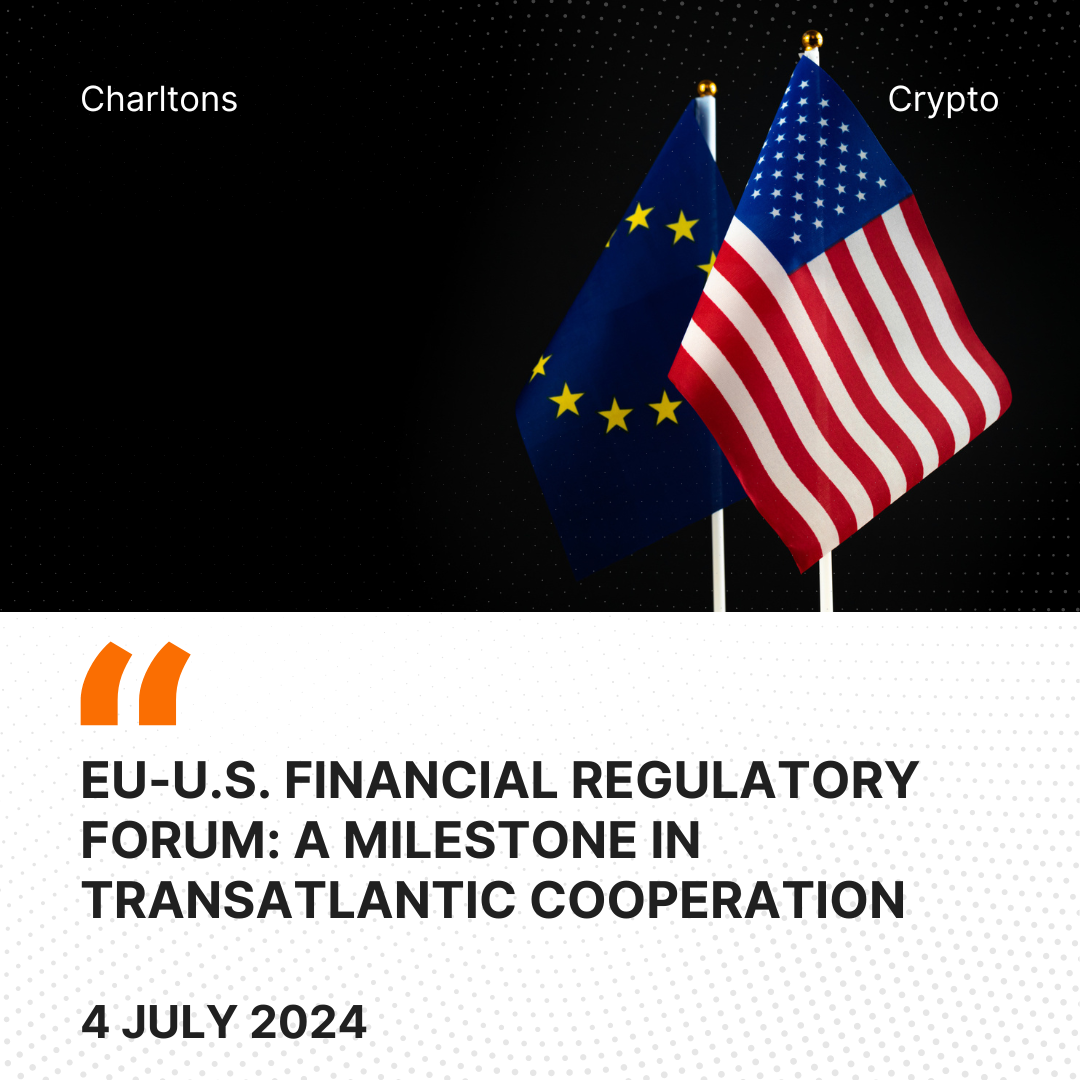
On 25-26 June, 2024, the EU–U.S. Joint Financial Regulatory Forum concluded a productive meeting hosted by the European Commission and the U.S. Department of the Treasury. This forum brought together top financial regulators from both sides of the Atlantic to discuss and align on critical issues, with a special focus on cryptocurrency regulation and anti-money laundering (AML) efforts.
Representatives from the European Commission, European Banking Authority (EBA), European Securities and Markets Authority (ESMA), European Insurance and Occupational Pensions Authority (EIOPA), European Central Bank (ECB), and the Single Resolution Board (SRB) joined their U.S. counterparts from the U.S. Department of the Treasury, Federal Reserve Board (FRB), Commodity Futures Trading Commission (CFTC), Federal Deposit Insurance Corporation (FDIC), Office of the Comptroller of the Currency (OCC), Securities and Exchange Commission (SEC), and Consumer Financial Protection Bureau (CFPB).
The forum highlighted the necessity of robust EU-U.S. cooperation in several key areas, particularly focusing on the evolving landscape of cryptocurrency regulation and AML/CFT measures. Participants emphasized the need for stringent supervisory practices and effective macroprudential policies to safeguard financial stability amid increasing geopolitical tensions and economic uncertainties.
A major highlight of the forum was the detailed discussions on cryptocurrency assets and their regulation. Both the EU and U.S. sides acknowledged the rapid growth and potential risks associated with digital currencies. The European side updated on the implementation of the Markets in Crypto-Assets (MiCA) Regulation, aiming to establish a harmonized framework for crypto-asset markets across the EU. Meanwhile, U.S. participants shared insights from the Treasury-FRB Critical Providers Dialogue, emphasizing the need for robust oversight mechanisms.
Participants stressed the importance of international cooperation to address issues related to crypto-assets, including the regulation of stablecoins. They agreed on the necessity of continued coordination through international forums such as the Financial Stability Board (FSB) to develop consistent regulatory standards and enhance market integrity.
Equally significant were the discussions on anti-money laundering and countering the financing of terrorism (AML/CFT). U.S. representatives provided updates on the ongoing implementation of the Anti-Money Laundering Act of 2020, including the establishment of a beneficial ownership registry under the Corporate Transparency Act. They highlighted Treasury’s 2024 National Illicit Finance Strategy and the latest National Risk Assessments on Money Laundering, Terrorist Financing, and Proliferation Financing.
EU participants shared progress on their recently adopted Anti-Money Laundering Package, which includes the creation of a new Anti-Money Laundering Authority. Both sides discussed strategies to enhance AML/CFT frameworks, improve transparency, and strengthen enforcement against financial crimes.
Sustainable finance and corporate sustainability were also key topics. Participants exchanged views on recent developments in climate-related financial disclosures and the work of international bodies like the G20’s Sustainable Finance Working Group. The ECB presented updates on integrating climate risks into financial strategies and governance.
On capital markets, discussions focused on the shortening of the settlement cycle in the U.S. and potential implications for the EU. ESMA provided updates on its assessment of the settlement cycle and the associated costs and benefits. Discussions on fund reforms and vulnerabilities in the non-bank financial intermediary sector further emphasized the importance of international cooperation.
The forum also explored the use of artificial intelligence in financial services, discussing opportunities, challenges, and regulatory implications. Both sides expressed a keen interest in ongoing discussions on AI in international forums. Financial data sharing proposals were another focal point, with updates on the European Commission’s Financial Data Access Regulation and the CFPB’s rulemaking on Personal Financial Data Rights.
The forum concluded with exchanges on operational resilience, underscoring the importance of ongoing cooperation to ensure the stability and security of the financial system. Participants reaffirmed the forum’s role in fostering continuous dialogue on regulatory and supervisory issues, supporting financial stability, investor protection, and market integrity.
Both EU and U.S. participants acknowledged the forum’s critical role in addressing mutual concerns and committed to continued engagement on these topics ahead of the next forum meeting. This ongoing dialogue is essential for developing cohesive policies that enhance the resilience of the financial system and protect against emerging risks in the digital age.
(Source: https://home.treasury.gov/news/press-releases/jy2443)





